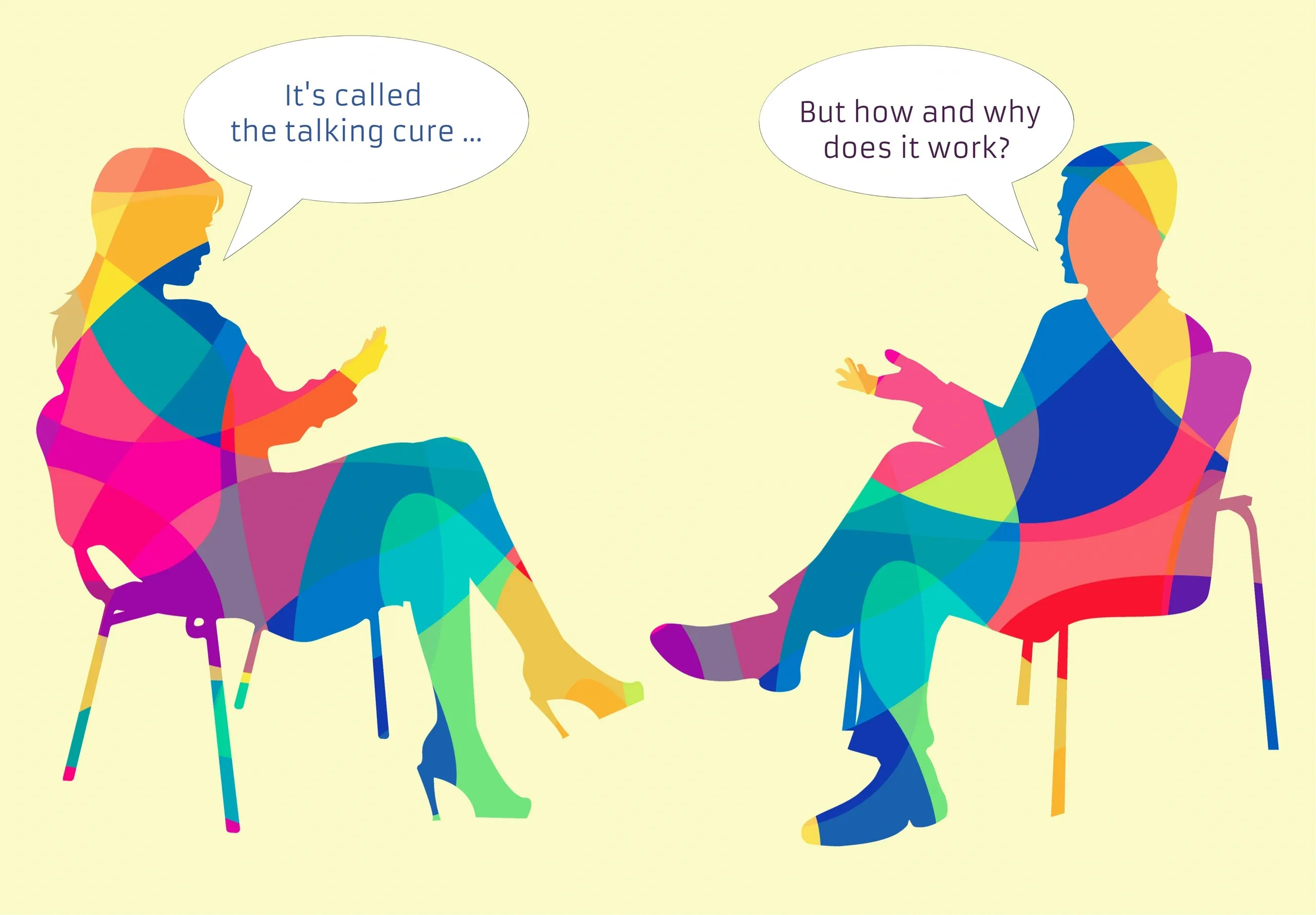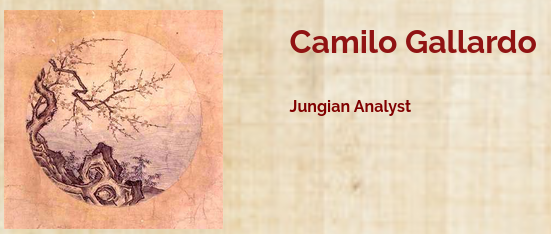 Therapy
Therapy
I therefore took up a dream image or an association of the patient’s, and, with this as a point of departure, set him to the task of elaborating or developing his theme by giving fee reign to his fantasy. This, according to individual taste and talent, could be done in any number of ways, dramatic, dialectic, visual, acoustic, or in the form of dancing, painting, drawing, or modeling. Finally I was able to recognise that in this method I was witnessing the spontaneous manifestation of an unconscious process which was merely assisted by the technical ability of the patient, and to which I later gave the name the “individuation process”… In many cases, this bought a large measure of therapeutic success, which encouraged both myself and the patient to press forward despite the baffling nature of the results. I felt bound to insist that they were baffling, if only to prevent myself from framing, on the basis of certain theoretical assumptions, interpretations which I felt were not only inadequate but liable to prejudice the ingenious productions of the patient … And so it is with the hand that guides the crayon or brush, the foot that executes the dance step, with the eye and the ear, with the word and the thought: a dark impulse is the ultimately arbiter of the pattern, an unconscious a priori precipitates itself into plastic from… over the whole procedure there seems there seems to reign a dim foreknowledge not only of the pattern but of its meaning. Image and meaning are identical; and as the first takes shape, so the latter becomes clear… the pattern needs no interpretation: it portrays its own meaning. Jung 1947
Face To Face
Jungian psychotherapy is a specialised form of psychotherapy in which the therapist and client work together to increase the patient’s consciousness in order to move toward psychological balance and wholeness, and to bring relief and meaning to psychological suffering. The process can treat a broad range of emotional disorders such as depression and anxiety, and it can also assist anyone who wishes to pursue psychological growth. At the heart of Jungian psychotherapy is a realignment of conscious and unconscious aspects of the personality with and ensuing creation of new values and purpose.
The therapy session typically lasts 50 minutes and is done face to face and can be for short term or long term psychotherapy.
First, contact me by e-mail so we can arrange a phone call so that you may ask whatever you wish about how I work, fees and we can talk briefly about your reasons for seeking psychotherapy.
If you desire, we can then arrange an initial face to face session where we can discuss the above issues in greater detail. During the session we will individually be able to assess whether working together will be both productive and rewarding. If, hopefully, we do decide to do so we can then develop an outline programme for future sessions.
"What is the talking cure?"
One way to answer this question is to say what Jungian psychotherapy is not. It is not a psychotherapy in which the therapist offers advice to the patient. "For," Jung says, "I do not know what to say to the patient when he asks me, 'What do you advise? What shall I do?' I don't know either."
In Jungian psychotherapy, the therapist deliberately adopts a "not-knowing" attitude.
Why does the therapist not know? The therapist cannot know, immediately, what is unknown – that is, what is unconscious. Jung defines the unconscious as "the unknown at any given moment." He emphasizes that "the unconscious is something that is really unconscious."
Jung says that the therapist must "give up all pretensions to superior knowledge, all authority and desire to influence" the patient. It is not the therapist who knows anything (for example, what is "best" for the patient). Rather, it is the unconscious that "knows" something.
In Jungian psychotherapy, it is not the therapist who offers advice to the patient. Jung says that "we get nowhere by employing well-intentioned advice." It is the unconscious that offers advice to the patient.
Jungian psychotherapy, Jung says, is "a dialogue or discussion between two persons." It is a mutual process, a collaborative conversation, between the therapist and the patient. Together, as equals, the therapist and patient analyze what the unconscious of the patient advises.
The advice that the unconscious offers to the patient is what Jung calls a "compensation." The problem, Jung says, is that the attitude of the conscious mind is too one-sided and too narrow. The solution, he says, is "to compensate the one-sidedness and narrowness of the conscious mind by deepening its knowledge of the unconscious."
Jungian psychotherapy is a "depth psychotherapy," or a "psychotherapy of the unconscious." The purpose of Jungian psychotherapy is to deepen what the conscious mind knows about the unconscious. Jung says that "the real and authentic psyche is the unconscious."
Dreams are especially important in Jungian psychotherapy, for, as Jung says, they are "beyond the control of the conscious mind." Jung regards dreams as "indispensable" to psychotherapy, for they have an importance "equal to the conscious mind itself."
Why dreams are so important is that they are the purest, most spontaneous expression of the unconscious. What the unconscious expresses in dreams are compensations for the one-sided, narrow attitude of the conscious mind. "When we set out to interpret a dream," Jung says, "it is always helpful to ask: 'What conscious attitude does it compensate?'"
When a patient has a problem, Jung does not pretend to know the solution. It is dreams that propose a solution to the problem, so Jung says to the patient: "let us see what they say." Dream interpretation is an essential activity in Jungian psychotherapy.
Jung considers "it the prime task of psychotherapy today to pursue with singleness of purpose the goal of individual development." The development of the individual is what Jung calls "individuation."
Jung defines individuation as a process through which "the patient becomes what he really is." The purpose of Jungian psychotherapy is not for the patient to become merely "normal." Rather, it is for the patient to become truly unique. Jung says that individuation is a process through which "a man becomes the definite, unique being he in fact is."
Jung says that "the fundamental rule for the psychotherapist should be to consider each case new and unique." Jungian psychotherapy provides an opportunity for us to develop as individuals so that, ultimately, through an encounter with the unconscious, we may consciously become who we uniquely are.
These 10 steps provide a framework that will allow you to better understand your dreams and thereby, better interpret the meaning of your dreams:
- Prepare: Keep a pen and paper by your bed.
- Review: As soon as you awaken review the elements of your dream.
- Key words: Identify key words from your dream, out of which you can create a title for your dream. Write down the title and keywords followed by as much of the dream as you remember.
- Journal: Keep a Journal of your dreams and your notes, thoughts and feelings about your dreams.
- Associations: Write down your associations to the images or symbols in your dreams.
- Amplifications: Find amplifications to the images or symbols in your dreams.
- Context/Setting: Note the context of events in your outer life at the time of the dream, and also the setting of your dream.
- Structure: Look at the structure of your dream.
a) What is the initial situation?
b) What develops or changes?
c) What is the action?
d) What is the climax? e) What is the lysis? - Characters: Note the characters in the dream, and determine if there is an identifiable protagonist.
- Note any particular emotions or feelings associated with your dream.
